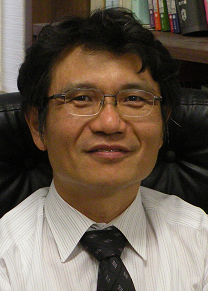【Research Keywords】
Protein kinase C, spinocerebellar atrophy, Parkinson disease, elongation of neural processes, survival of neurons, ischemic brain disease, microglia, serotonin transporter
【Recent highlights】
1.The orphan G-protein-coupled receptor GRP3, which is abundantly expressed in CNS, constitutively elevates the levels of cAMP. We now demonstrated that GPR was transferred from the cell body to tips of neurite, which could elevate the cAMP level and facilitate the elongation of neural processes (PLoS One. 11 (2016) e0147466).
2.The Toll-like receptor 4-activated microglia subpopulation survives via granulocyte macrophage colony-stimulating factor and exerts neuroprotective functions (Neurochem. Int. 93 (2016) 82-94).

 Home
Home


